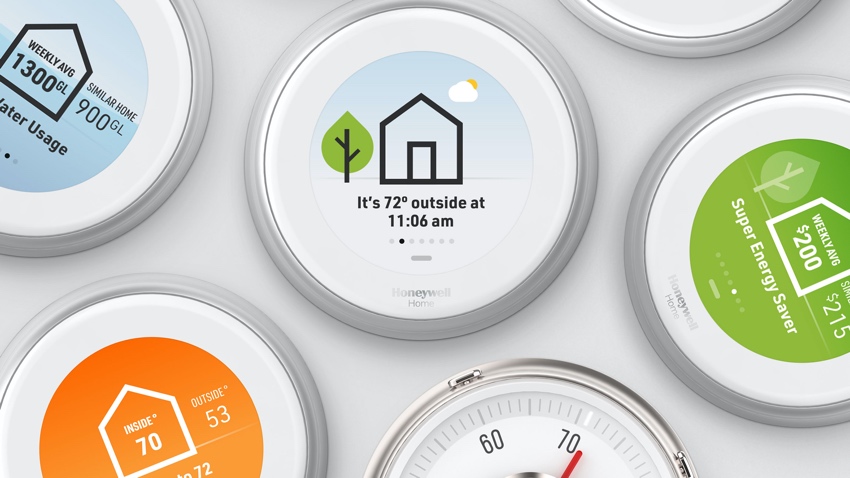How can a smart home save energy? Introduction
With the ever-increasing cost of energy and the environmental impact it has, it has become imperative for homeowners to find ways to reduce their energy consumption. Fortunately, advancements in technology have paved the way for smart home solutions that can help optimize energy usage and reduce wasteful practices. In this article, we will explore various strategies and technologies that homeowners can implement to make their homes more energy-efficient and eco-friendly.
Understanding energy consumption patterns
Before diving into specific solutions, it is crucial to understand the patterns of energy consumption within a home. By analyzing energy bills and monitoring usage, homeowners can identify peak periods of consumption and areas where energy is being wasted. This understanding will serve as a foundation for implementing targeted solutions to reduce energy consumption and costs.
Optimizing heating and cooling systems
Heating and cooling systems are major contributors to energy consumption in most households. By installing programmable thermostats, homeowners can optimize their HVAC systems to operate only when needed. This allows for energy savings during periods when the home is unoccupied or when the temperature outside is moderate. Additionally, ensuring proper insulation and weatherstripping on windows and doors can prevent heat loss or gain, reducing the need for excessive heating or cooling. Upgrading to energy-efficient HVAC systems, such as those with high SEER (Seasonal Energy Efficiency Ratio) ratings, can further enhance energy savings and reduce environmental impact.
Automated lighting with motion sensors
Leaving lights on when they are not needed is a common energy-wasting practice. By incorporating motion sensors and timers into lighting systems, homeowners can automate the turning on and off of lights based on occupancy. Motion sensors can detect movement in a room and automatically switch on the lights, while timers can be set to turn off lights after a certain period of inactivity. This not only saves energy but also provides convenience and enhances home security.
Using smart power strips
Many electronic devices continue to consume energy even when not in use, a phenomenon known as phantom power or vampire power. By using smart power strips, homeowners can cut off the power supply to devices when they are not being actively used. Additionally, some smart power strips can detect when a device is in standby mode and automatically cut off power to reduce wasted energy.
Efficient management of appliances
Household appliances, such as refrigerators, washing machines, and dishwashers, are major energy consumers. Upgrading to energy-efficient models with high Energy Star ratings can significantly reduce energy consumption. Additionally, optimizing the use of these appliances by running full loads, using shorter wash cycles, and air-drying clothes can further enhance energy savings.
Monitoring energy usage in real-time
Real-time monitoring of energy usage allows homeowners to have visibility into their energy consumption patterns. Smart energy monitors can provide real-time data on energy usage, allowing homeowners to identify wasteful practices and adjust their behavior accordingly. Furthermore, some smart energy monitors can provide alerts and notifications when energy usage exceeds certain thresholds or when certain appliances are consuming excessive energy. This allows homeowners to take immediate action to reduce consumption and avoid high energy bills.
Implementing renewable energy solutions
Integrating renewable energy sources into a home’s energy infrastructure can greatly reduce reliance on fossil fuels and lower energy costs. Solar panels, for example, can harness the power of the sun to generate electricity. This renewable energy source can be used to power various appliances and even feed energy back into the grid, resulting in energy credits and further cost savings. Other renewable energy options include wind turbines, geothermal systems, and hydroelectric generators. Each of these options has its own advantages and considerations, depending on the geographical location and availability of natural resources.
Integration with utility company programs
Many utility companies offer programs and incentives to encourage energy-efficient practices. Homeowners can take advantage of these programs by participating in demand response initiatives, where they agree to reduce energy consumption during peak periods in exchange for incentives or credits on their energy bills.
Additionally, some utility companies offer rebates or subsidies for the installation of energy-saving technologies, such as solar panels or energy-efficient appliances. By leveraging these programs, homeowners can further reduce their energy costs and contribute to a more sustainable future.
Smart home energy-saving tips
In addition to the specific technologies mentioned above, there are several general tips that homeowners can follow to make their homes more energy-efficient:
- Use natural lighting whenever possible and switch to energy-efficient LED light bulbs.
- Set water heaters to a lower temperature and insulate hot water pipes to minimize heat loss.
- Unplug chargers, power adapters, and other electronics when not in use to prevent standby power consumption.
- Regularly clean or replace air filters to ensure HVAC systems operate efficiently.
- Plant trees or install awnings to provide shade on windows during the summer, reducing the need for excessive cooling.
By implementing these smart home energy-saving tips and utilizing the technologies discussed, homeowners can significantly reduce their energy consumption, save money on utility bills, and contribute to a greener and more sustainable world.
Conclusion
In the age of environmental awareness and sustainable living, the emergence of smart homes offers a promising solution to energy conservation. With their ability to monitor, analyze, and optimize energy usage, smart homes empower individuals to actively make a difference. By integrating these innovative technologies into our lives, we can collectively take steps towards a greener, more energy-efficient future.
So, why not embrace the excitement of smart homes and join the revolution in energy conservation today?

